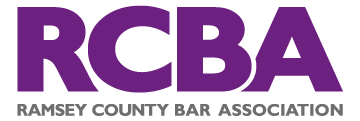In business contracts, indemnification provisions shift costs, with one party taking responsibility for harm caused by another and defending them from monetary losses, lawsuits, or other potential damages under certain circumstances. Indemnification clauses are oftentimes commonplace in many contracts, providing necessary protection to companies who may be at risk due to things out of their control. A likely scenario can be evidenced in purchasing contracts, where the supplier’s product is faulty but it is the buyer who faces legal action from a customer. In the resulting legal dispute, a buyer would rely on their contract with the supplier, and more specifically, the indemnification clause within that contract. For this reason, it is important for both parties to closely examine the contents of these clauses and make sure what is included is comprehensive and tailored to fit your business’s potential needs.
Type of Indemnification. Whether explicitly stated or not, a business contract will usually lay out the type of indemnification provided. Indemnification provisions falling under the “broad” form category are ones that require a party to indemnify another irrespective of actual fault. These kinds of provisions, however, have often been found to be against public policy and as such they should not be blindly relied upon. By contrast, “intermediate” form clauses indemnify a party for its negligence unless they were completely at fault. “Limited” or “comparative” form indemnity clauses provide less protection for the indemnitee, requiring the indemnitor to be held responsible only for their own negligence. Whichever kind of indemnification is found favorable, it is important for both parties to avoid ambiguity when drafting the clause, as vague, overarching clauses, especially those that favor the party with the stronger bargaining power, are often held by courts not to cover all losses. Time and Financial Caps. Time caps limit the amount of time a potential indemnitee has to bring a claim against an indemnitor. Financial caps place a cap on the amount of money the indemnitor will pay out in the event of indemnification. Both time and financial caps can offer great benefits in terms of limiting an indemnitors potential liability, but they also can be negotiated up by indemnitees, most likely for an additional price. Insurance. If you are the indemnitor, it is advisable to consider purchasing professional indemnity insurance. Such insurance may protect you against the costs associated with potential lawsuits, such as court fees, lawyer’s fees, and resulting settlements, even if the company is at fault. General liability insurance may also cover certain indemnity clauses within the conditions of the contract. Consulting a Lawyer. Lastly, as you’ve seen, it is important that you consider consulting with an experienced attorney when drafting contracts which include indemnification provisions. An experienced attorney can help shed light on the industry standards for indemnification. Businesses face specific challenges when taking on the risks associated with doing business with others and possible indemnity needs, and receiving adequate, competent legal advice is vitally important to starting off such contract drafting on the right foot.
This article was sponsored by Vlodaver Law Offices, LLC, an experienced business solutions and transactions law firm in the Twin Cities. If you would like a free legal consultation,












